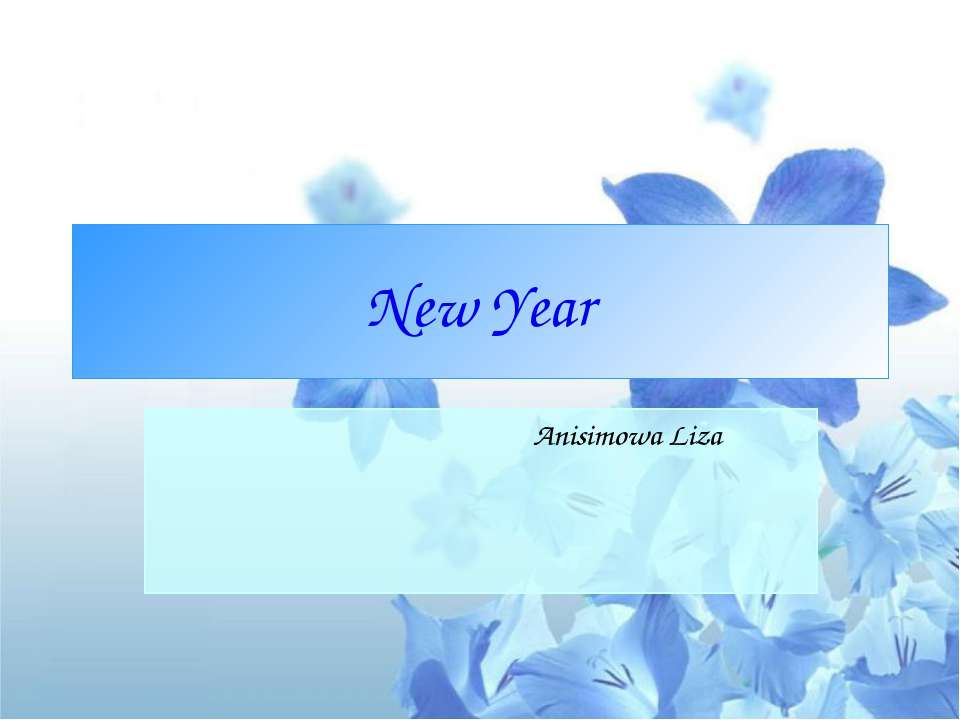Презентация - "Chinese New Year"

- Презентации / Презентации по английскому языку
- 0
- 14.10.20
Просмотреть и скачать презентацию на тему "Chinese New Year"
Сайт klass-uchebnik.com предлагает качественные учебные материалы для школьников, родителей и учителей. Здесь можно бесплатно читать и скачивать современные учебники, рабочие тетради, а также наглядные презентации по всем предметам школьной программы. Материалы распределены по классам и темам, что делает поиск максимально удобным. Каждое пособие отличается логичной структурой, доступной подачей материала и соответствует действующим образовательным стандартам. Благодаря простому языку, наглядным схемам и практическим заданиям, обучение становится легче и эффективнее. Учебники подойдут как для ежедневной подготовки к урокам, так и для систематического повторения перед экзаменами.
Особое внимание стоит уделить разделу с презентациями - они становятся отличным визуальным дополнением к теории, помогают лучше понять сложные темы и удерживают внимание учащихся. Такие материалы удобно использовать в классе на интерактивной доске или при самостоятельной подготовке дома. Все размещённые на платформе материалы проверены на актуальность и соответствие учебной программе. Это делает сайт надёжным помощником в образовательном процессе для всех участников: школьников, учителей и родителей. Особенно удобно, что всё доступно онлайн без регистрации и в свободном доступе.
Если вы ищете надежный источник для подготовки к урокам, контрольным и экзаменам - klass-uchebnik.com станет отличным выбором. Здесь вы найдёте всё необходимое, включая "Chinese New Year", чтобы сделать обучение более организованным, интересным и результативным.
Chinese New Year is the beginning of a new year according to the lunar calendar. The holiday is celebrated with big family gatherings, gift giving, the eating of symbolic foods and celebrating the coming of Spring.
Jiao zi At midnight, it's a custom to eat jiao zi (dumplings), because the word jiao zi is similar to the ancient word for new replacing the old. Jiao zi symbolize wealth in the new year.
The Gregorian and lunar calendars The Gregorian or solar calendar is based on the Earth's movement around the sun and has a fixed number of 365 days a year (366 during a leap year). In China the lunar calendar is used to determine traditional holidays like Chinese New Year. It is based on the phases of the moon - which has a shorter cycle than the sun and falls somewhere between January 21st and February 20th.
The origin of Chinese New Year According to the legend, the beginning of Chinese New Year started with the fight against a mythical beast called the Nien. Nien came on the first day of New Year to eat livestock, crops, and even villagers. To protect themselves, the villagers put food in front of their doors at the beginning of every year. The Nien was afraid of the red colour. So people began to hang red lanterns on windows and doors.
Customs from the past Chinese New Year is the longest and most important festivity in the Chinese Lunar Calendar. Nowadays most families celebrate the New Year for about two week's time, starting on the first day of the new year and end on the 15th. Everybody still follows all the customs that their elders have taught them.
A two-weeks’ New Year festival in China The First day It is a time when families visit the oldest and most senior members of their extended family, usually their parents, grandparents or great-grandparents.
The second day It is for married daughters to visit their birth parents. Traditionally, daughters who have been married may not have the opportunity to visit their birth families frequently. On that day the Chinese pray to their gods. They are very kind to all dogs and feed them well as it is believed that the second day is the birthday of all dogs.
The third day The third day is known as chì kǒu, directly translated as "red mouth". It is generally accepted that it is not a good day to socialize or visit your relatives and friends.
The fifth day This is the birthday of the Chinese god of wealth Guan Yu. It is also common in China that on the 5th day people will shoot off firecrackers ensuring his favor and good fortune for the new year.
The seventh day It is known as the common man's birthday, the day when everyone grows one year older. People get together to toss the colourful salad and make wishes for continued wealth and prosperity.
The eighth day is the eve of the birth of the Jade Emperor. However, everybody should be back to work by the 8th day. All of government agencies and business will stop celebrating by the eighth day.
The ninth day It is traditionally the birthday of the Jade Emperor. Incense, tea, fruit, vegetarian food or roast pig, and paper gold is served for paying respect to an honored person.
The thirteenth day is dedicated to the General Guan Yu, also known as the Chinese God of War. Guan Yu was born in the Han dynasty and is considered the greatest general in Chinese history. He represents loyalty, strength, truth, and justice.
The fifteenth day The fifteenth day of the new year is celebrated as Lantern Festival (Yuanxiao) which is on the night of the first full moon. On this day families walk along the street carrying lighted lanterns, play riddle games and eat sticky rice balls. This day often marks the end of the Chinese New Year holiday period.
Chinese New Year falls on Thursday, February 03, 2011. It is a year of Rabbit. A rabbit is a very nice animal and so this year it will bring you positive changes, success, happiness and good luck!



















